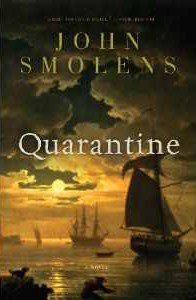The Dangers of Proximal Alphabets by Kathleen Alcott
 Wednesday, September 12, 2012 at 5:12AM
Wednesday, September 12, 2012 at 5:12AM 
Published by Other Press on September 11, 2012
Jackson and James are brothers. Jackson is only a year older but he seems determined to be middle-aged well before he enters his teens. A freakishly obsessive kid, Jackson memorizes all the bones in the human body "in order to understand and own how they carried him." Ida is Jackson's inseparable friend from infancy and his lover from adolescence. Jackson and James virtually become part of Ida's family; Ida's father treats them as if they were his own children. As they get older, Jackson starts having nightmares that lead to nocturnal violence; sometimes his somnambulism produces art, other times mayhem. Meanwhile James becomes a mentally ill, suicidal drug addict.
Ida and Jackson are no longer together when the novel begins. Their paths depart about halfway through Ida's recollection of her life. As she tells her story, seemingly random incidents loom large in Ida's young life: her exploration of Jackson's body when she is seven and he is eight; Ida's shameful response to the kidnapping of a neighborhood child; the meanness Ida directs to a preacher's daughter who wants to befriend her. During too much of this short novel, as Ida reflects upon her life, I found myself asking "Why is she telling me this?" Kathleen Alcott provides no clear answer. On other occasions, Ida recalls seminal occurrences from her adolescence that are just too contrived to resonate as formative events in a young life.
None of the events in this short novel are eventful; none of the drama is dramatic. The motivation for Jackson's decision to leave Ida is ludicrous. The characters are tedious, as are Ida's mutating relationships with Jackson and James and her father and an art gallery owner named Paul. Ida's lifelong obsession with Jackson is inexplicable, particularly given that she spurned him before he spurned her. Ida writes: "Since childhood I've spent my heart and words and a catalog of tiny, insignificant moments trying to merge with a bloodstream not mine." I wanted to yell, "Get over yourself!"
Ida's actions and reactions are too often unexplained. I don't need authors to spell things out for me but I do like things to make sense. Ida's thoughts and deeds rarely do. When a character is as pathetic as Ida, I want to know how she came to be that way, but Alcott offers no insight into Ida's psyche. At bottom, I didn't believe the characters were real and I didn't believe the story that Ida narrates.
Alcott's writing is strong but it often amounts to flash without substance. She strives for (and sometimes achieves) an eloquence that overshadows the story she's trying to tell. At other times (as in the title), she's just pretentious. Clever phrasing and surprising word choices do not a novel make. How does a reader evaluate a novel that has nothing to say when the nothing is said beautifully? If I could rate them separately, I would recommend the prose but not the content. Since they are inseparable, however, I have to say ...
NOT RECOMMENDED


